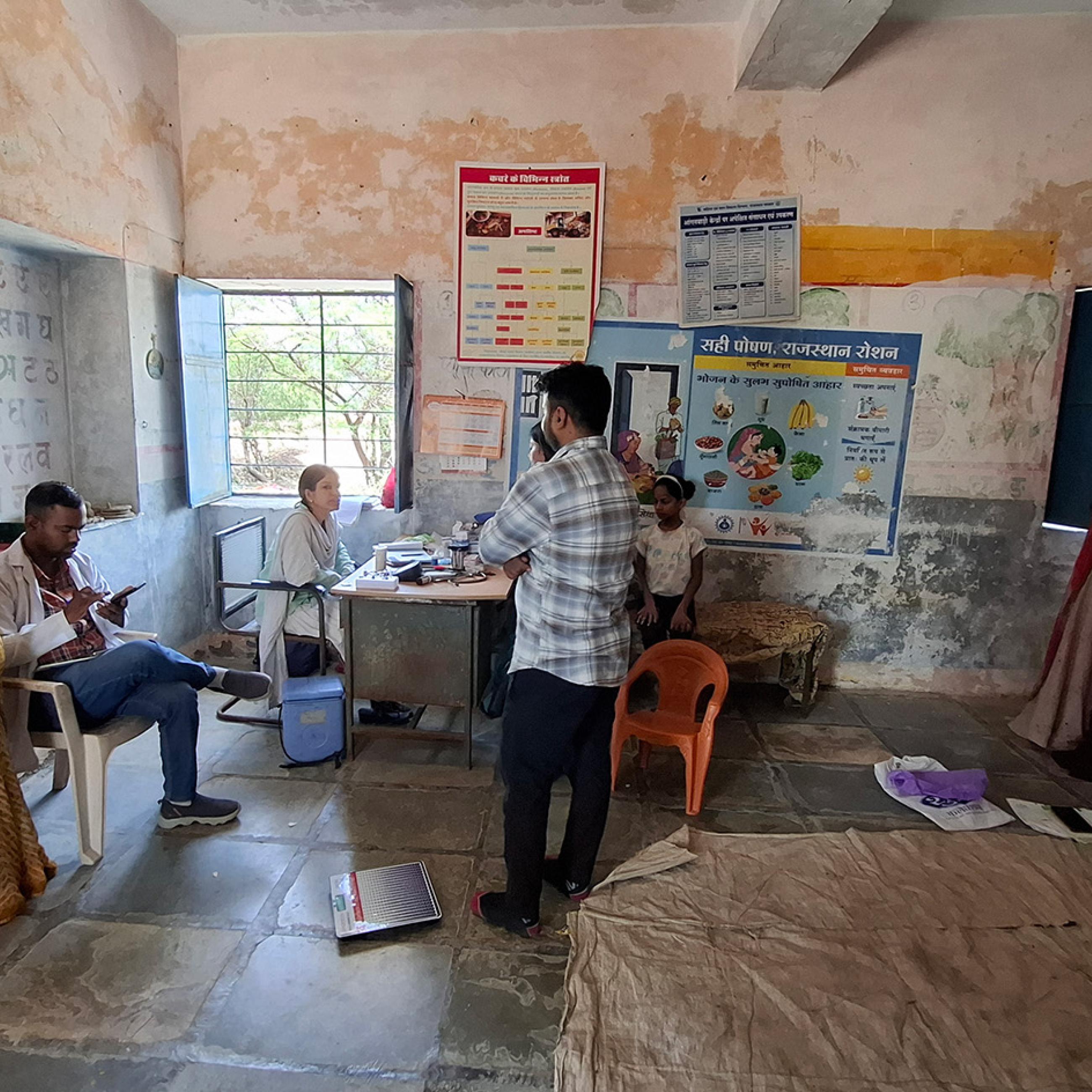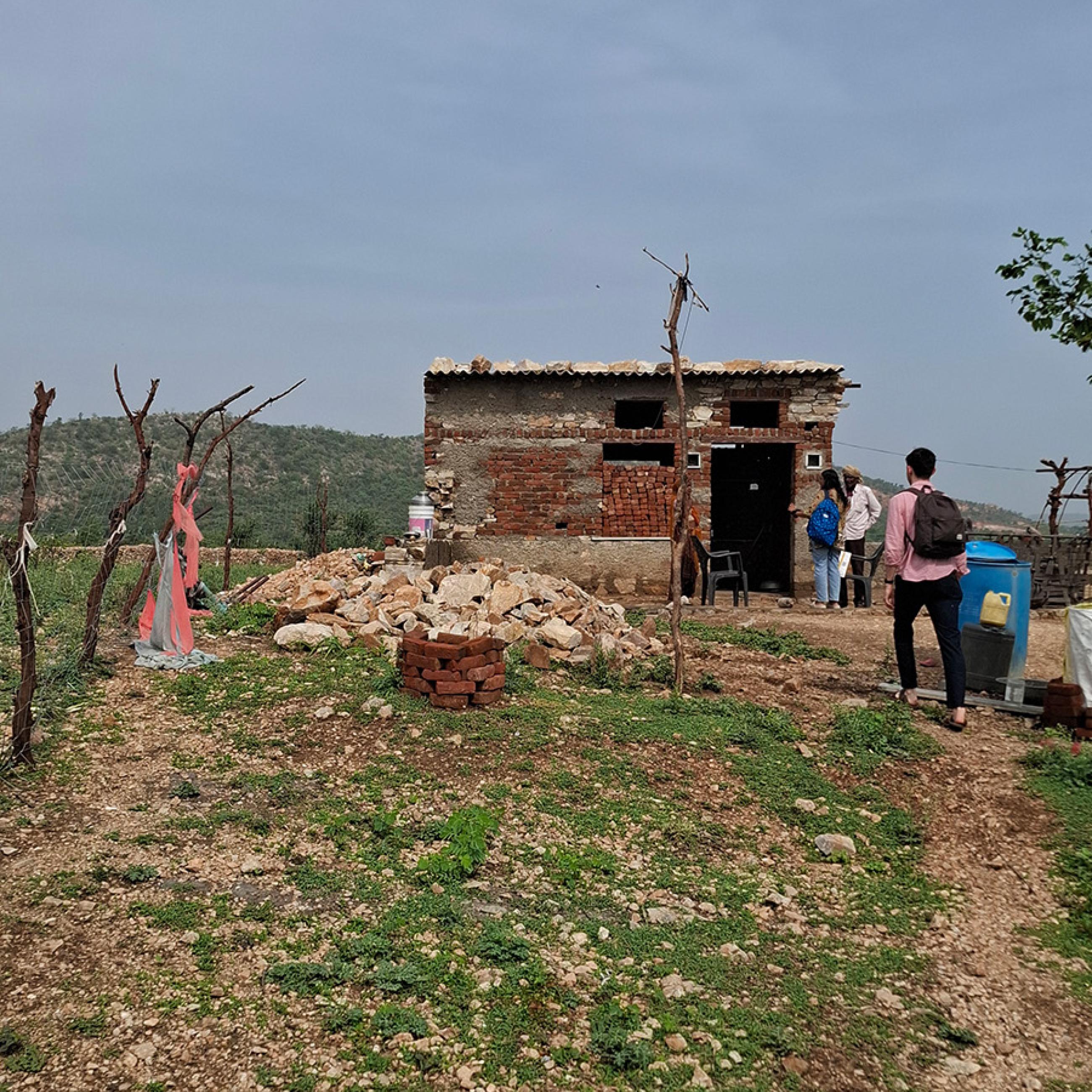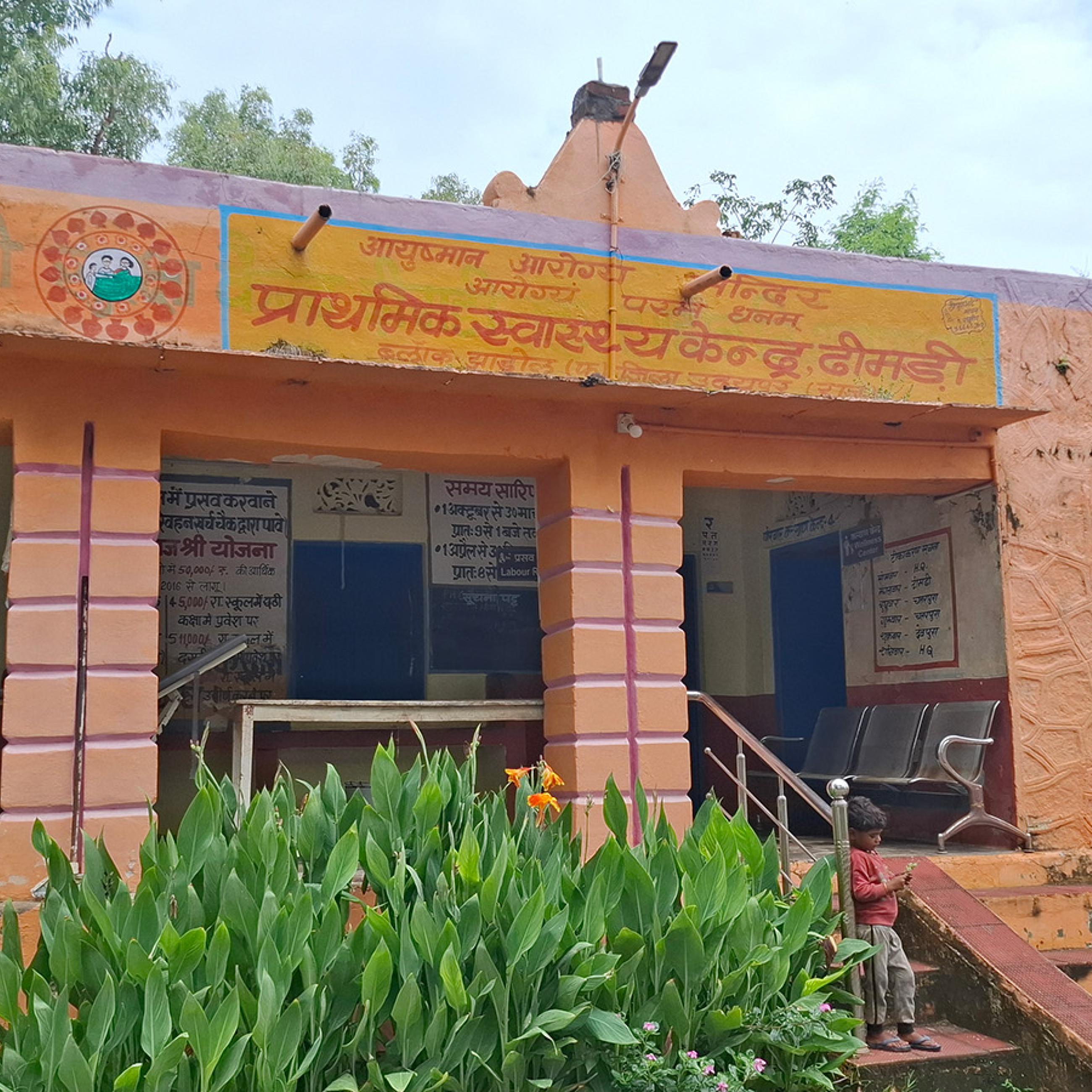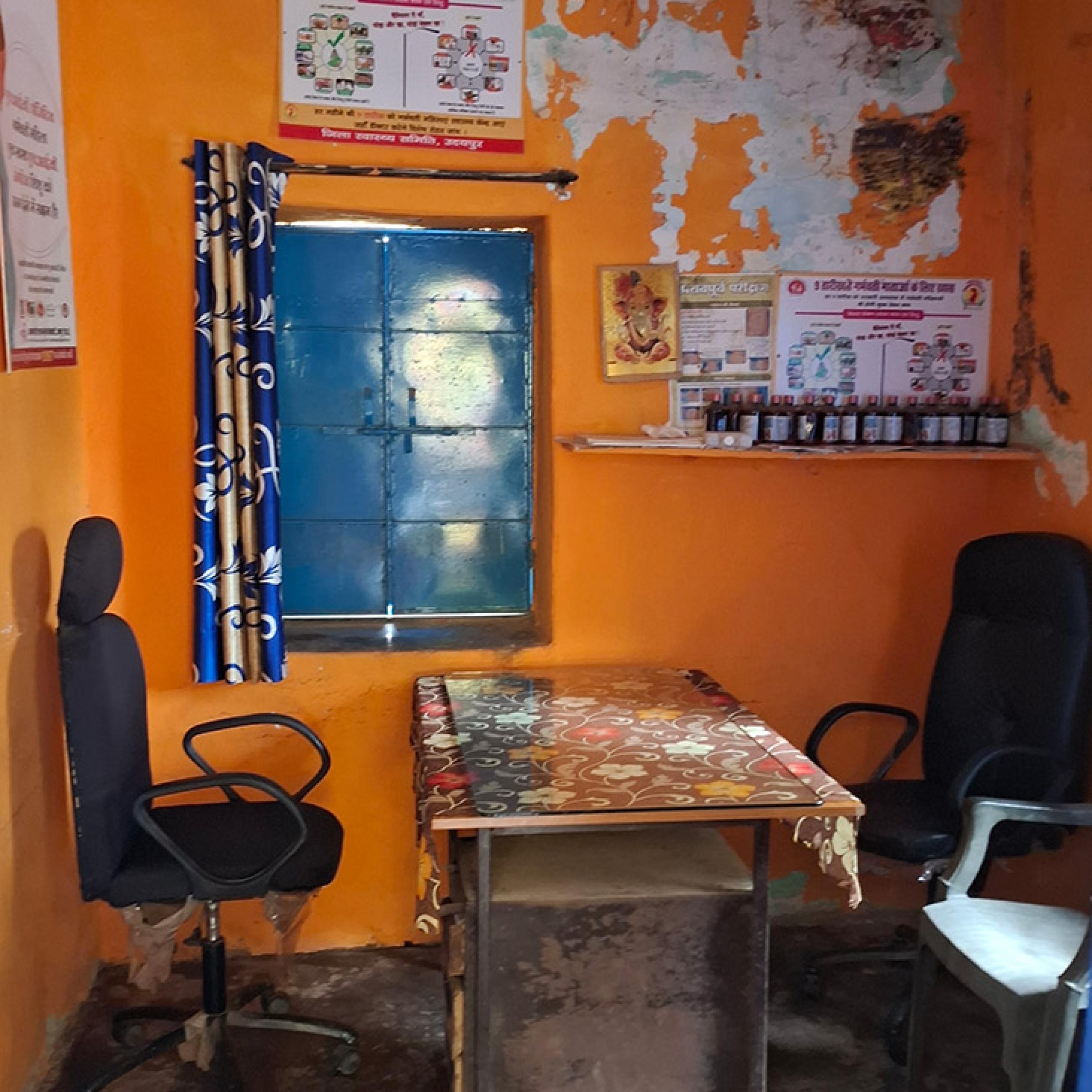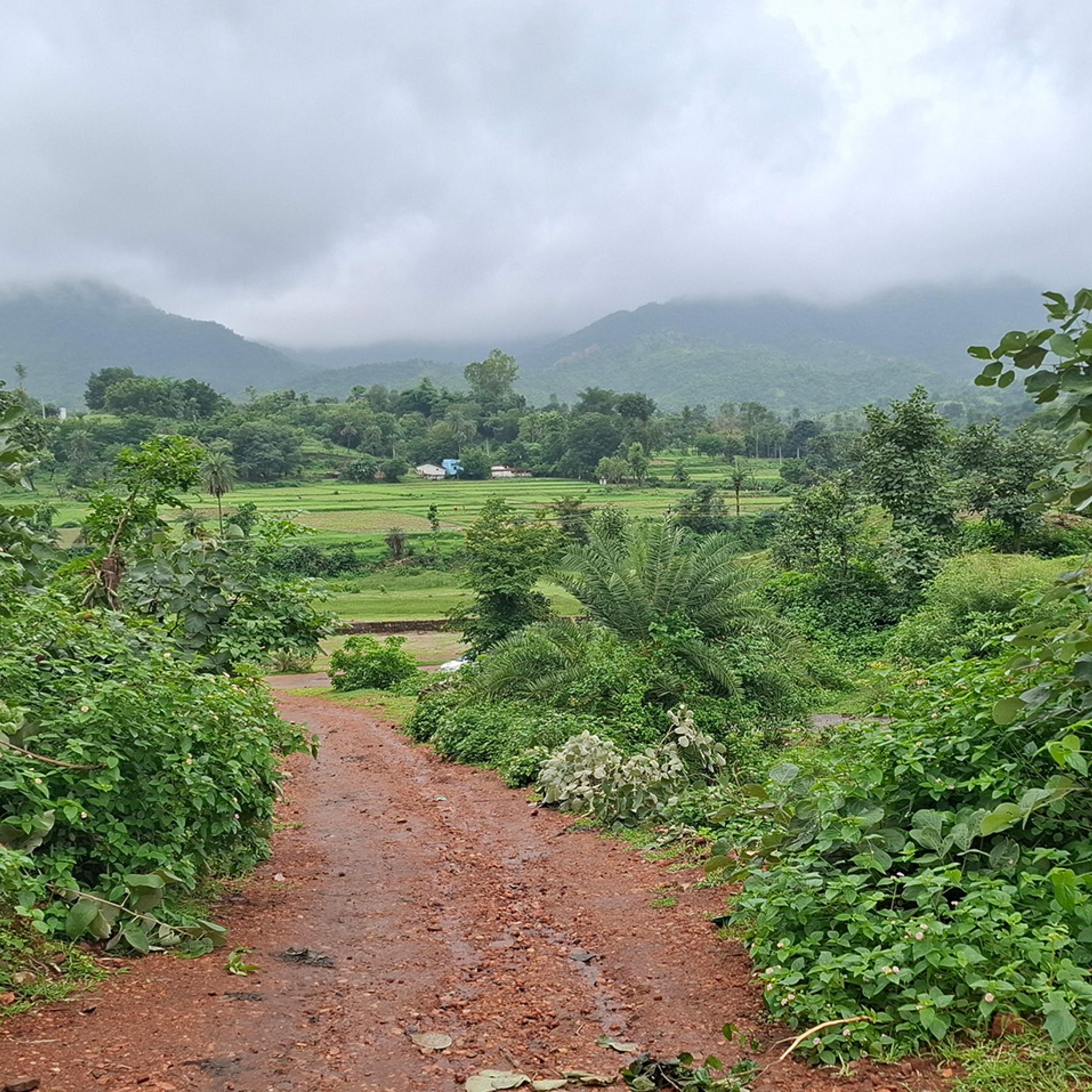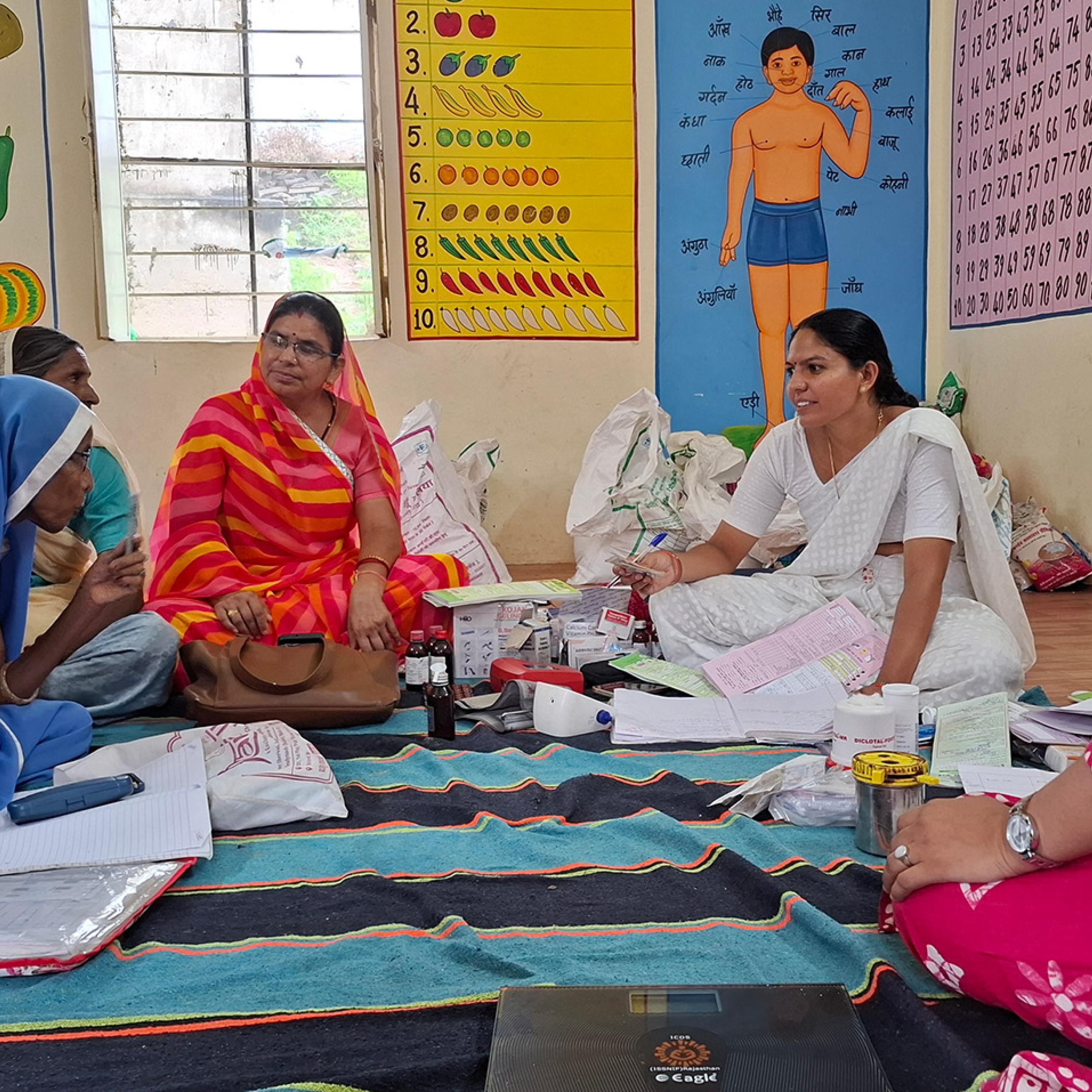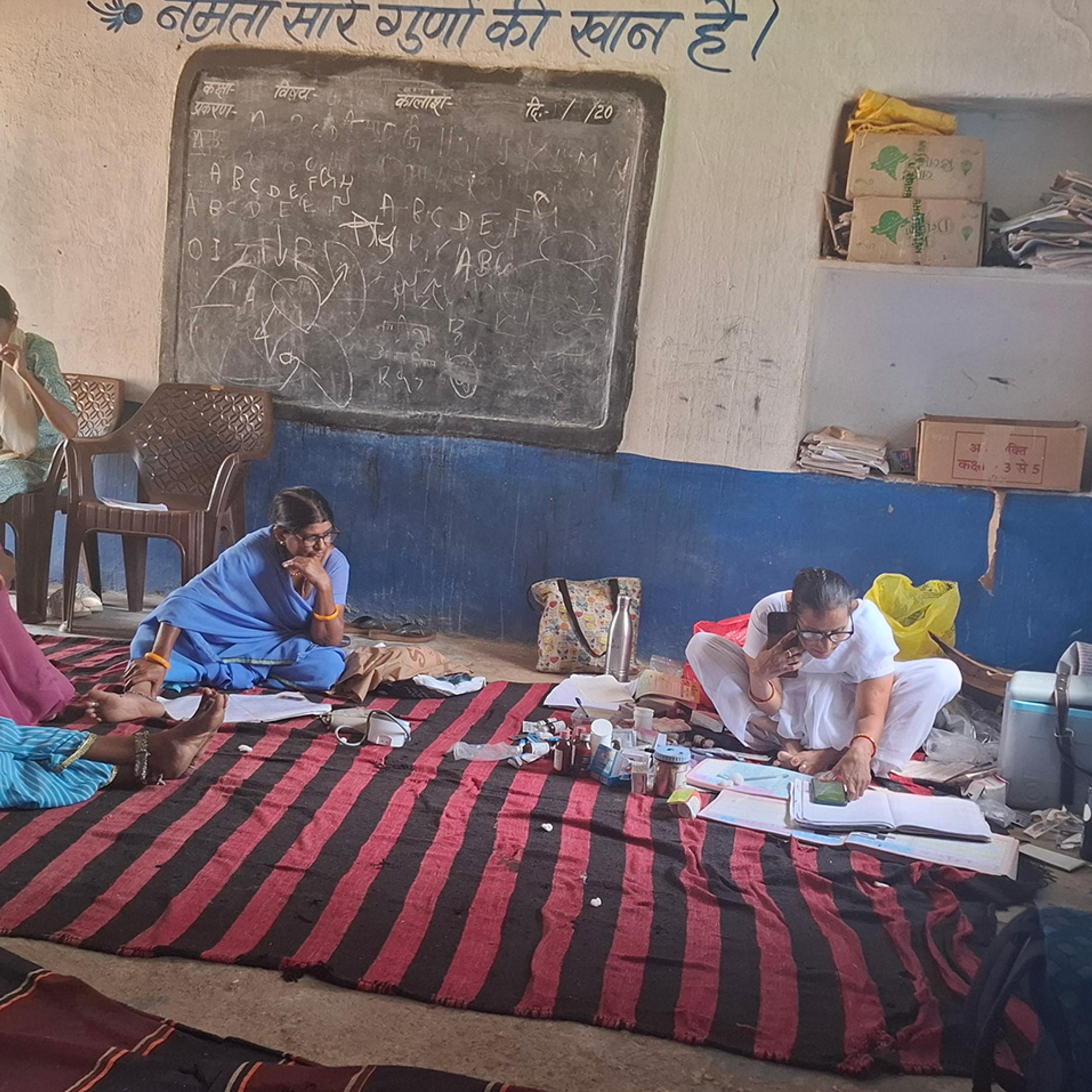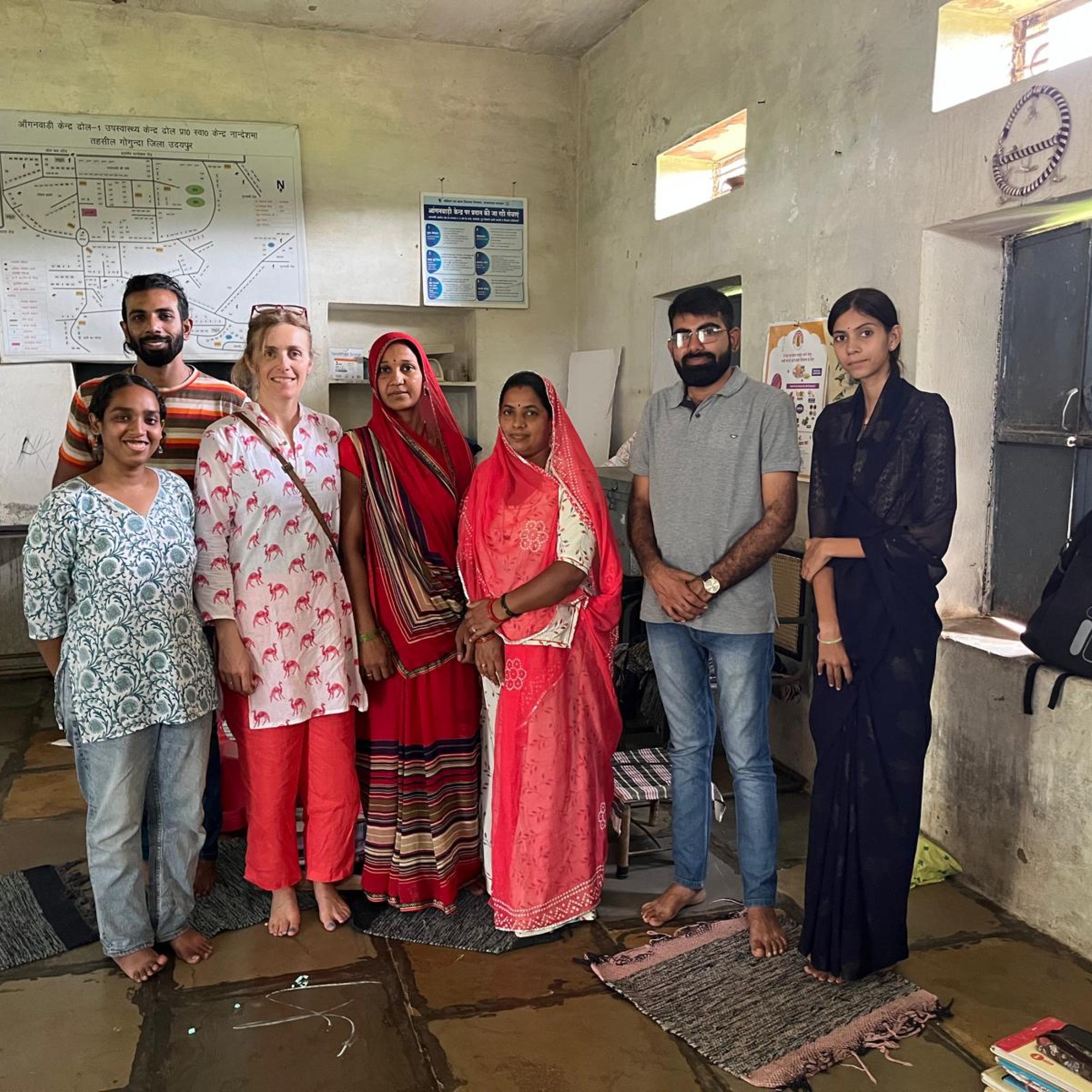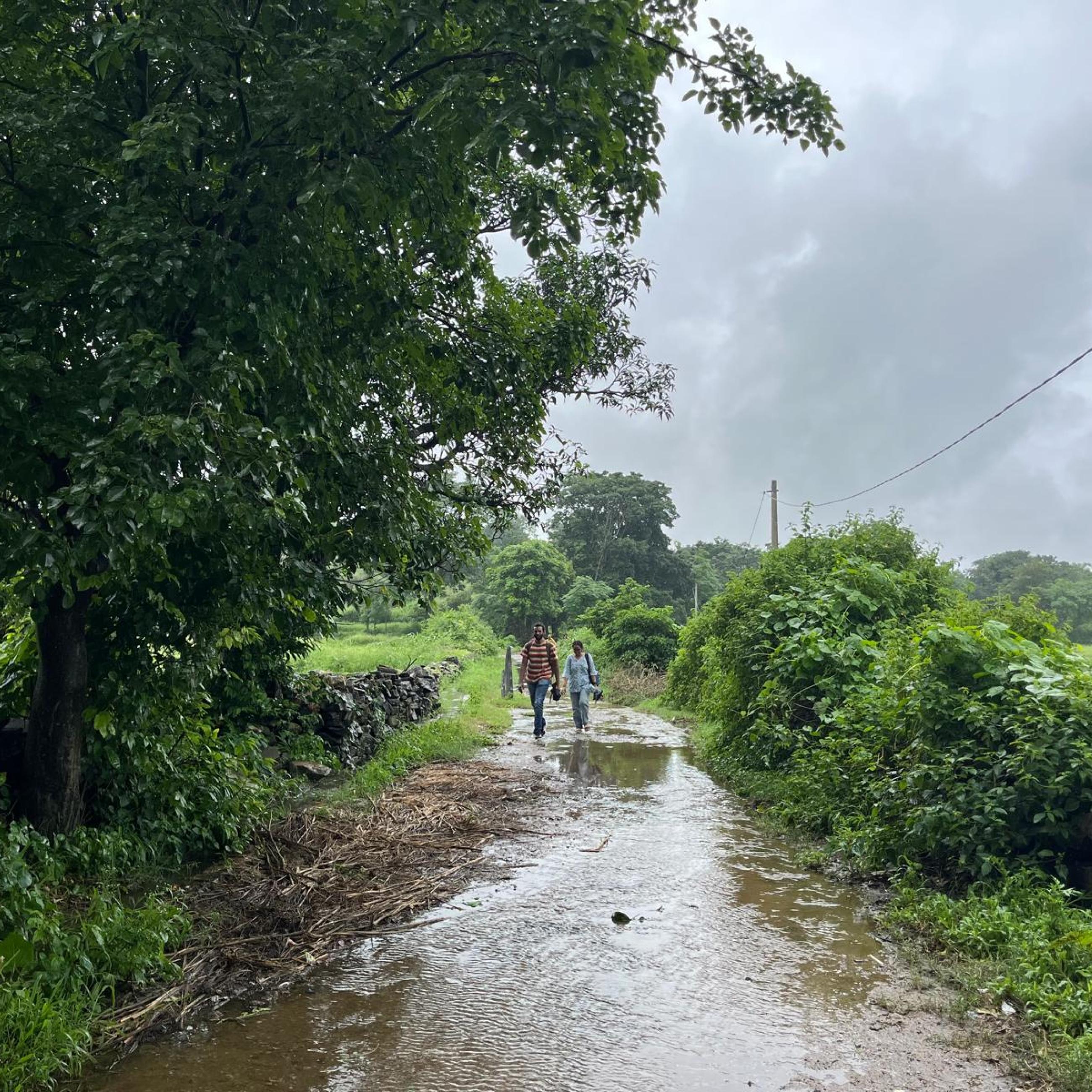When I first received the opportunity to spend my summer in India as a visiting Research Assistant at J-PAL South Asia, I was both excited and hesitant. This would be my first time visiting India, a country I had always wanted to experience because of its cultural diversity and my ancestral ties. I knew it would be a chance to grow both personally and professionally, but at the time I did not know how transformative the experience would be.
After a 16-hour flight, I landed in Udaipur, Rajasthan. The very next day, I was in the field, with another research assistant, walking in the high temperatures of the region. We first went to a nearby public health center, outside of Udaipur city, where we met healthcare officials to better understand how the local healthcare system operates. Our goal was to understand how an AI chatbot could help improve the health services in the health centers in rural Udaipur. We met with some ASHA workers who are female healthcare workers who serve as links between the rural community and the public healthcare system. They shared more about the health initiatives that they were working on and talked about the challenges they face daily. Despite having limited resources, their dedication to serving their communities was unwavering.
As the days went by, fieldwork quickly became a rhythm of long, unpredictable, and yet meaningful learning days. On some days, we traveled almost two hours to reach remote tribal areas in the mountainous areas. On other days, we spent the whole day in the field visiting households and speaking to community members about their experiences accessing healthcare. Sometimes, we braved the early monsoon rain and walked through flooded roads and fields to access health centers.
These experiences showed me another angle of research that I had previously been oblivious to. Until then, my professional experience had mostly been on the data-receiving side of research. Prior to coming to SPIA, I worked as a Senior Research Associate and I analyzed surveys, interpreted results, and worked with datasets that were already cleaned and prepared. This time, I was witnessing the other side of research; I saw how data collection depends on patience, cultural understanding, and adaptability.
Beyond the professional insights I gained, certain moments also remain etched in my mind. I remember talking to a six-year-old girl who walked nearly two kilometers to get medication for her mother. There was a pregnant woman who could not reach the nearest hospital for a check-up because the only bridge connecting her village to the nearby health center had collapsed during a flood. There were also those tribal kids who were ill but whose parents did not want to bring them to the doctor because this was against the norms in the community. These were windows into the daily realities that shape people’s lives that I had read about, but that I was able to witness during my time in Udaipur.
These experiences not only showed me the other side of research, but they also made me reflect on my own journey. Through these daily village visits, I began to reconnect with something I had unintentionally lost sight of. My first year at SPIA was not the smoothest. During the first few months, I found myself adapting to a foreign country, adjusting to a new academic environment and managing a demanding workload. Amid it all, I felt disconnected with the deeper purpose that had brought me to public policy in the first place.
It was during my time in Udaipur that everything began to come back into focus. In the villages, I experienced the power of community in ways I had never seen before. Healthcare workers and community leaders who had never met us welcomed us with open hearts and assisted us during our field visits so we could help their communities. The patients we spoke with saw us as a source of hope for improving the care they received at the health centers.
These experiences reminded me that I came to SPIA to contribute to solutions that are grounded in real-world experiences and that serve communities in meaningful ways. Good policy begins with understanding people where they are. There were days when my fieldwork days were exhausting but that was when the most powerful learning happened. This realization reconnected me with my purpose of making the world more livable and strengthened my commitment to pursuing my policy degree at SPIA. My experience in Udaipur, thanks to the paid-summer internship with SPIA support, also kindled my interest in health policy, and I am currently taking a class in global health challenges to further pursue that interest.



